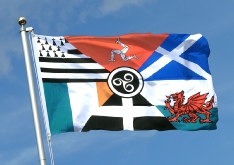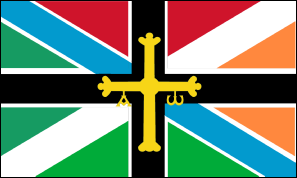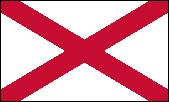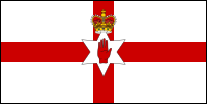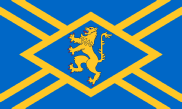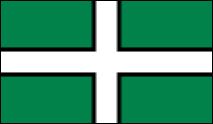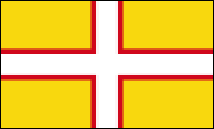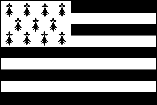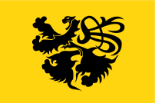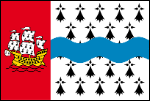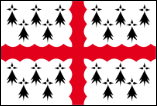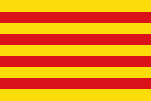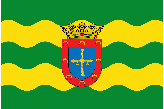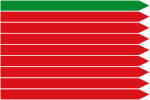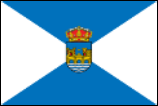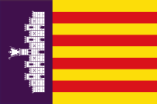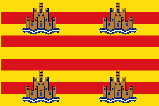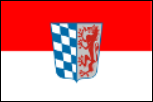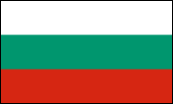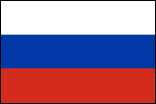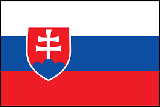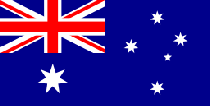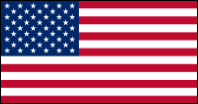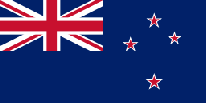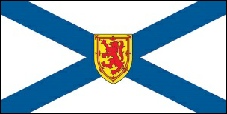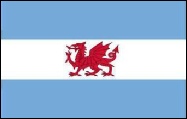
© 2013-2024 North Berwick Pipe Band

CELTIC NATIONS
And Associated Groups
|
Following our recent trips to Portugal, Asturias, and even Germany what are the Celtic Nations. The Celtic nations are territories in western Europe where Celtic languages or cultural traits have survived. The six territories widely considered Celtic Nations are Brittany (Breizh), Cornwall (Kernow), Wales (Cymru), Scotland (Alba), Ireland (Éire) and the Isle of Man (Mannin or Ellan Vannin), commonly referred to as the “Celtic fringe”. In each of the six nations a Celtic language is spoken: Brittonic or Brythonic languages are spoken in Brittany, Cornwall, and Wales, while Goidelic or Gaelic languages are spoken in Scotland, Ireland, and the Isle of Man. |
||
|
|
|
|
|
Alba – Scotland |
Breizh - Brittany |
Cymru – Wales |
|
|
|
|
|
Éire – Ireland |
Kernow – Cornwall |
Mannin or Ellan Vannin – Isle of Man |
|
This six nation Celtic Flag combines the flags of these Nations: |
||
|
|
||
|
Although not having a spoken Celtic language there are many areas that still have a Celtic heritage. Parts of the northern Iberian Peninsula, namely Galicia, Cantabria and Asturias lay claim to this heritage. |
||
|
|
|
|
|
Asturias – Spain |
Cantabria – Spain |
Galacia - Spain |
|
This Celtic Flag includes representations of these additional Nations |
||
|
|
||
|
These areas have a strong bagpipe, bagad or gaitas culture. In fact the Bagpipe, in its various forms, can be found in most nations of the world but the most common, in addition to those already mentioned are: United Kingdom: |
||
|
|
|
|
|
Northumberland And even within Ulster the area of Ulaidh (Arranmore) |
Saltire Ulster Banner Northern Ireland |
|
|
|
As it now has its own flag it would be remiss to exclude our home county of East Lothian: |
|
|
Other areas bordering the above regions also have Celtic roots, although do not promote it as vigorously as the areas previously mentioned. At the end of the period of British history known as Roman Britain (c. AD 410) the inhabitants of Cumbria were Cumbric-speaking native Romano-Britons who were probably descendants of the Brigantes and Carvetii (sometimes considered to be a sub-tribe of the Brigantes) that the Roman Empire had conquered in about AD 85. |
||
|
|
|
|
|
Cumbria |
|
|
|
Devon derives its name from Dumnonia. During the British Iron Age, Roman Britain, and the early Middle Ages, this was the homeland of the Dumnonii Brittonic Celts. Somerset settlement names are mostly Anglo-Saxon in origin, but numerous place names include Brittonic Celtic elements, such as the rivers Frome and Avon. Some modern names are Brythonic in origin, such as Tarnock, while others have both Saxon and Brythonic elements, such as Pen Hill. Dorset has a long history of human settlement stretching back to the Neolithic era. The Romans conquered the Durotriges, Dorset’s indigenous Celtic tribe, during their invasion of Britain. |
||
|
|
|
|
|
Devon |
Somerset |
Dorset |
|
The Rest of Europe: France: Even Brittany splits into various regions that consider themselves Celts: |
||
|
|
|
|
|
Gallo-vannetais, Loudéac & Penthièvre |
Cornouaille (including Pourlet & Aven) |
Léon |
|
|
|
|
|
Nantes |
Rennes |
Trégor |
|
|
|
|
|
Vannetais (including Carnac & Bro Kost ar C’hoad) Apart from Brittany forms of bagpipes can also be found in |
|
|
|
|
|
|
|
Bournonnais |
Nivernais |
Morvan, and also in the regions of |
|
|
|
|
|
Occitania |
Gascony |
Auvergne |
|
French and Spanish Basque regions. |
||
|
|
|
|
|
Basque Country |
Basque Country (Spain) |
|
|
Other areas of Spain including: |
||
|
|
|
|
|
Catalonia |
Allande (a municipality within Asturias) |
Castile |
|
|
|
|
|
Aragon |
Zamora |
Pontevedra |
|
And even on the islands of: |
|
|
|
|
|
|
|
Mallorca |
Menorca |
Ibiza |
|
In Portugal |
|
|
|
|
|
|
|
the Trás-os-Montes e Alto Douro Province is known for its bagpipe tradition. In Northern Italy |
||
|
|
|
|
|
Bagpipes can be heard around Bergamo While in the Ligurian Apennines the tradition is still strong in the four Provinces of |
||
|
|
|
|
|
Alessandria |
Genoa |
Pavia, and |
|
|
|
|
|
Piacenza Indeed most other European Countries have bagpipes in one form or another. In Germany the sound of the pipes can be heard in |
||
|
|
|
|
|
Bavaria, and Lower Bavaria Poland for example has at least five regions where bagpipes are still played |
||
|
|
|
|
|
Lubusz |
Wielkopolska |
Silesia |
|
|
|
|
|
Podhale, and Zywiec And bagpipe tunes have been sourced from |
|
|
|
|
|
|
|
Bulgaria, and |
Russia |
|
|
|
|
|
|
Slovakian bagpipe culture exists throughout Slovakia, covering instrument-making, music repertoire, style and ornamentation to dance, special verbal expressions and folk customs. This is one of the cultures on the UNESCO Heritage List. The Rest of the World: Variations on the bagpipe can be found on all the other continents with the probable exception of Antarctica. Anywhere that a Celt has settled they have taken their traditions with them. Obvious examples would be |
||
|
|
|
|
|
Australia |
USA |
New Zealand |
|
|
|
|
|
Canada And less obvious |
|
|
|
|
|
|
|
Vietnam |
The Solomon Islands |
|
|
Other examples of specific regions would be from Nova Scotia, Canada to the Welsh speaking area of Patagonia (y Wladfa) in Argentina in South America. Had it been successful in the 1690’s the Darien Scheme’s colony of Caledonia in what is now Panama might also have seen a Scots Gaelic speaking area in Central America. Sadly this was not to be, although the area is still known as Puerto Escocés. |
||
|
|
|
|
|
Nova Scotia |
Y Wladfa (Welsh Patagonia) |
Caledonia (the Company of Scottish Trading to Africa and the Indies) |
|
Some of these smaller regions also see themselves as independent nations. * Sources - Breizh Partitions (www.celticscores.com) which has a source of tunes for bagpipe music from many countries and obviously Wikipedia and other online sources. |
||

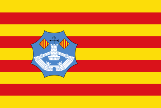
| Weather |
| Engagement Details |
| History |
| Timeline |
| Tune List |
| Our Members |
| Learn to Play |
| News |
| Venues of Note |
| Resources |
| Foreign Tours |
| Support the Band |
| Humour |
| Celtic Nations |
| Members Gallery |
| Early Days |
| USA |
| Germany |
| 2000s |
| 2018 |
| Asturias2018 |
| 2019 |
| 2020 |
| 2021 |
| 2022 |
| 2023 |
| 2024 |
| Miscellaneous |
| Site Index |






